Review (By Walter Rhein) Examining ‘Gaslit By A Madman: Illuminated Poems’ by Max J. Lewy
Every now and then I pick up a book of poetry. I have a degree in English, so I’m not unfamiliar with poems, but here in the wild I don’t stumble across them with great frequency. I appreciate the occasionally well-crafted song lyric, and enjoy the effect when somebody like Tolkien throws a poem into his prose. Poetry works like a packet of seasoning in the middle of a plate of good but otherwise homogeneous food. A poem forces you to slow down and let the gears of your mind start spinning. If you charge right through, the effect is akin to running a marathon at the Louvre. Poems work a lot better when you read them out loud, and sometimes you can change a room by shouting words into it. ‘Gaslit By A Madman: Illuminated Poems’ by Max J. Lewy is a book of poetry that is much closer to Kurt Cobain than William Wordsworth, and I don’t mean that as an insult. There is a legitimate chaos in this book that is quite compelling, and the poems are all included as text and as a component of colorful collages like you’d see on a lamp post in a foreign country. In the introduction, Lewy gives some tantalizing details about his history of mental illness. The short version is that he was “[v]eritably knocked off his horse by two out-of-control, gaslighting shrinks at the tender age of 23.” More than a decade later, the unfortunate ruling was overturned. Mental health terrifies everyone simply because nobody, not even the experts, seems to know how it works. However, that doesn’t stop them from making life altering decisions. The poems that fill the pages of ‘Gaslit By A Madman: Illuminated Poems’ have a certain raw power and indisputable affiliation with chaos. As I read the collection, I found myself comparing the experience to watching a bird making a nest out of the colorful pages of a magazine. As you sit there, you observe the colors it collects and puts together. At first it seems like chaos, then you start to recognize an underlying symmetry. However, you never know for sure if there is a common understanding within your mind and that of the bird, or if there are just moments of random alignment. The first poem didn’t impress me. It’s short and not very complex with a repetitive and simple rhyme scheme. It’s not an offensive poem, and retroactively I see that it serves as an appropriate warm-up for the rest of the collection. But as I read it, I was concerned that it represented the level of complexity that would be common in the volume. It does not. It doesn’t take very long for Lewy to flex his muscles and show off some very nice wordplay. This book isn’t overly refined, but I believe that helps add to its authenticity. There are some line choices I disagree with, but overall there’s indisputable evidence of talent and purpose in this collection. Consider these lines from ‘Lobotomized the Beast.’ They have even lobotomized The Beast. Theirs is a religion stunted of both notion and emotion, Its charisma is like a poorly made wax-work dummy, Gauche and deathly cold, yet smooth in all its juvenile simplicity. It would make you too into a mannequin, An exemplary ticklist of outer inconsequentialities to set beside every barren, burning soul. For they care about only what they see, they see nothing important, And all they do is smoke and mirrors. They never awoke. Because, Wherever there is a soul burning, most people only see the smoke! Occasionally, in my travels, I’ve stumbled into a tiny restaurant in some distant corner of a Spanish speaking country. When you’re tired from the road and surrounded by all that is new and strange, your mind reaches out for words in English. Sometimes you’ll find poetry written in those places and it truly does have the power of spell casting. I think the words in Max Lewy’s book are legitimate. If you happened to stumble across them in the right context, they could completely knock you out. Here’s what I think people should do: they should get a copy of this guy’s book, and then travel through South America plastering the pages on the walls in distant cafes. That, to me, seems like a wholly worthy quest. Lewy could do it alone, but wouldn’t it be better if it happened organically? Imagine the army of chuckling travelers toting copies of a ripped and tattered collection of poetry through the jungles and the deserts. What a great legacy for words and writer both! Anyway, I sincerely suggest you check this book out. There’s some remarkable writing in it, even though it’s sometimes like discovering a vein of precious metal still encased in the stone of a mountain.
(Walter Rhein is a frequent, high caliber contributor on Medium.)
About this blog

GASLITBYAMADMAN: The CertifiablyTRUERavingsOfASectionedPhilosopher is a droller take on the subjects of mental health, political issues and Nietzschean, Christian, Jungian, existentialist and post-modern philosophy. Don’t be afraid to question your world view, don’t be afraid to think you might be a bit ‘mad’. Who isn’t?
It is based on the author, Max J. Lewy’s, own experience as an oh-so-patient patient in the N.H.S. Mental Health System. Veritably knocked off his horse by two out-of-control, gaslighting shrinks at the tender age of 23, his writings trace his recovery from this life-changing, iatrogenic incident over the next 12 or so years, exploring the ‘mad’ identity that was placed upon him and the truly insane, or certainly very flawed and eye-brow raising System which so unfortunately often does such things to quite healthy and relatively rational people. It contains beautiful visually-enhanced poems from the author’s book “Madness: a form of love”, written to aid the recovery process during some of the author’s lowest moments so far, a long with many barbed and incisive aphorisms accompanying longer pieces of text providing great philosophical and humane insight. Please do check it out.
https://www.amazon.com/Gaslit-Madman-Illuminated-Max-Lewy/dp/B084QLBRKM/ref=sr_1_16?dchild=1&keywords=max+lewy+gaslit&qid=1597850866&sr=8-16
https://www.amazon.com/Gaslit-Madman-Illuminated-Max-Lewy-ebook/dp/B088F3VKGM/ref=pd_rhf_se_p_img_6?_encoding=UTF8&psc=1&refRID=QQ3PSMFBEFKTRJS40RNM


More about me & this blog : As I explain below, I have no taste for polite codes of speech. Please don’t use that as an excuse to invade my personal space like the Mad Doctors did.
On this blog: “Are You O.K.? Are you mad?”
Someone asked me “Are you
O.K.? Should we be concerned about you? Are you really mad?”
Answer:
Madness is the theme I write about, but its also a part of my
aesthetic and stylistic approach. I play with it and embrace it,
rather than trying to distance myself from it. I don’t try to be a
dry, scholarly, anaesthetized, therapeutic commentator, but also an
entertainer and artistic performer, if anything more in the romantic
and renaissance traditions or Artaud’s Theatre of Absurd. combined
with an ironical post-modern & Platonic element, than the one of
modern psychology. That is a basic reflection of how I think these
things ought to be done more often; as I say in my previous post, I
feel the ‘personality’ element needs to be put into things more
throughout society. The melding of life and art has also been as
basic concern of great thinkers like Nietzsche, Oscar Wilde, and lots
of others who I’m heavily influenced by.
I feel it would be a bit hypocritical to defend madness and those deemed ‘mad’ in an impeccably ‘sane’ manner, whereas by going in the opposite direction I feel I make my own writings more authentic and morally courageous. Much of my aim is to question and break down the boundaries between ‘sane’ and ‘insane’, ‘analyst’ and ‘analysand’, which I feel are in many ways highly artificial and thus counter-productive to the real aim of authentic living and healing honesty, in many ways putting the ‘patient’ at an unfair disadvantage as the mere receiver of favors he often didn’t even ask for. How patronizing is it to say the ‘patient’ has nothing to teach, & is not providing a ‘service’ of his or her own? As the wise Seth Farber rightly says, there is a fundamental ‘equality’ to human consciousness that is belied by the highly hierarchical & stuffy ‘professional’ nature of psychiatry.
In a society which is severely curtailing emotional and verbal expression, there is also a moral imperative to maintain as wide expression as is still possible, to keep pushing at the boundaries before they become narrower and narrower and collapse in on themselves entirely into a rigid little box. I therefore insist upon the right to be responsibly irresponsible, or irresponsibly responsible. I also feel that an allergy to genuine and deep emotion is part of our general cultural malaise – a too great a wish to live at ‘the surfaces’ – as it has always been, and that a good reformer and rhetorician uses affects to his full advantage so as to make people really FEEL their existential state and the plight of others, in a way that may well appear ‘mad’, and be frightening to others used to a more ‘sanitized’ and mollycoddled, ‘mature’ yet also really infantilized regime. Of course, anyone who attempts to change a society’s values and modes is always liable to be attacked as ‘crazy’ and all other manner of slander, as he or she challenges the established interests of the status quo. By openly embracing the ‘mad’ aesthetic, I also hope to forestall any further accusations of unintentional, real mental illness (which I would argue must always be unintentional & crushing, diminishing rather than enhancing & enriching of a person’s sense of Self & the expression of their personality in order to qualify as a real ailment – although that important fact is hardly recognized at the moment! ). It is also an open pressing of this question and debate, by its mere existence.
The off kilter, anarchic approach to writing presentation and possibly quite ‘manic- depressive’, at times seemingly hyperbolic or deliberately paradoxical & offensive content and approach also in itself creates what I consider to be an atmosphere more suited to genuine thought, with its bold, even sometimes reckless daring and abandon. This aesthetic and vibe is thus a truly philosophical vibe; an intoxication of wine and berries, loosening the tongue and the constraints of vulgar propriety. It also attempts to re-invigorate with a sense of wonder, fear and trembling, cathartic sorrow, and playful, childish amazement, the perennial companions of a true authentic attitude towards the Universe and scientific quest, which always sees everything anew and as startling, as if from the eyes of a child or idiot, and feels it intensely. The overall attempt (not always successful, granted.. this is only my first prose-oriented book) is to convey a feeling for the great, dizzying PLEASURE of genuine thought itself. This decadent pleasure is in fact one of the most, perhaps even the only truly moral pleasure – as I say, most actions, most attempts to ‘save’ others, or save the world, are highly suspect & corrupt. Part of my aim may perhaps be said to intoxicate with language to prevent and avert the need for a cruder chemical intoxication in myself and others! Because language & insight is both moral & a pleasure to all truly higher mammals. The aim is transformation, not arid intellectual insight.
What makes people valuable is not primarily their ideas – its their vibration. If a person can communicate the right vibration to others, the ideas themselves will come naturally of their own accord.
(There is also a very sad factor I’m still very embarrassed about, whereby I am now in fact possibly incorrigibly and permanently drunk (though I am also quite teetotal!) as a result of the drug-rapery of psychiatric treatment itself, which, as I say, caused me severe, actual and lasting iatrogenic, nervous damage, even though the Dr.s refuse to & cannot admit it due to the nature of their own guild self-interests, as they so often deny their atrocities against others, the horror stories of which line the walls of history, & now the internet.) I do not pretend that my former faculties are by any means still intact, only that they are still well above par due to God’s grace to me early on.
In ancient times, as Nietzsche says in the quote earlier in my blog, madness and genius were not merely mildly associated, but practically only madmen could be innovators in the realm of ideas or customs; and wise men would actively pray for and cultivate an aesthetic of madness to be MORE convincing. It is also however in keeping with the true zeitgeist of our times, which in its unprecedented destruction of tradition and race towards possible oblivion, either literal or technological, ‘post-human’, a long with the omnipotence of ‘the Noble Lie’ and dual, subterranean aspect of reality and political and social discourse, as well as the more overt radical divisions and multiple competing, yet passionately held narratives of what constitutes reality and the correct values, is truly an age of strange miracles, terrifying marvels and often outright popular insanity that give the lie to ‘quiet, everyday normality’ better than anything that has ever happened previously throughout history.
Most
of all, in opening myself up to ridicule by voluntarily adopting a
‘mad’ persona, I thereby ‘turn the other cheek’.
So,
please don’t be worried about me, (especially as that is the very
thing that got me wounded in the first place). If you want to assist
me, and really care and aren’t just responding with a reactive
fearful desire to contain and suppress what seems strange and unusual
to you, just think about my ideas and what I’m trying to communicate
here — how it must feel to be labelled ‘mentally ill’ and have your
rights taken away, and become an object for others to ‘treat’ against
its Will, (especially when he or she is already feeling extremely
vulnerable and fragile), for instance — and please try to take them
on board a bit more. If you really want to help, buy one of my other
books, and help promote and popularize my work and thought further.
Then why not write a review on Amazon or Goodreads? Follow me on
Twitter (@GaslitByAMadman). And if I am ever subject to unwanted
psychiatric or other State-attentions, why not take an interest in my
case and try to defend me from further cruel abuse like I have
already sustained due to no prior crime of my own. Any of those
things would be most appreciated.
It is, however, natural, and actually part of my schtick and mystique for some people to be kept wondering a little on this question, so I do not resent it. It is all a question of each person’s current level.

Nietzsche On Madness
“Significance of madness in the history of morality. – When in spite of that fearful pressure of ‘morality of custom’ under which all the communities of mankind have lived, many millenia before the beginnings of our calendar and also on the whole during the course of it up to the present day (we ourselves dwell in the little world of the exceptions and, so to speak, in the evil zone):- when, I say, in spite of this, new and deviate ideas, evaluations, drives again and again broke out, they did so accompanied by a dreadful attendant: almost everywhere it was madness which prepared the way for the new idea, which broke the spell of a venerated usage and superstition. Do you understand why it had to be madness which did this? Something in voice and bearing as uncanny and incalculable as the demonic moods of the weather and the sea and therefore worthy of a similar awe and observation? something that bore so visibly the sign of total unfreedom as the convulsions and froth of the epileptic, that seemed to mark the madman as the mask and speaking-trumpet of a divinity? Something that awoke in the bearer of a new idea himself reverence for and dread of himself and no longer pangs of conscience and drove him to become the prophet and martyr of his idea? — while it is constantly suggested to us today that, instead of his grain of salt, a grain of spice of madness is joined to genius, all earlier people found it much more likely that wherever there is madness there is also a grain of genius and wisdom — something ‘divine’, as one whispered to oneself. Or rather: as one said aloud forcefully enough. ‘It is through madness that the greatest good things have come to Greece’, Plato said, in concert with all ancient mankind. Let us go a step further: all superior men who were irresistibly drawn to throw off the yoke of any kind or morality and to frame new laws had, if they were not actually mad, no alternative but to make themselves or pretend to be mad —- and this indeed applies to innovators in every domain and not only in the domain of priestly and political dogma:—- even the innovator of poetical metre had to establish his credentials by madness. (A certain convention that they were mad continued to adhere to poets even into much gentler ages., a convention of which Solon, for example, availed himself when he incited the Athenians to reconquer Salamis. — ‘How can one make oneself mad when one is not mad and does not dare to appear so?’ —- almost all the significant men of ancient civilization have pursued this train of thought; a secret teaching of artifices and dietetic hints was propagated on this subject, together with the feeling that such reflections and purposes were innocent, indeed holy. The recipes for becoming a medicine-man among the Indians, a saint among the Christians of the Middle Ages, an angekok among Greenlanders, a pajee among Brazilions are essentially the same: senseless fasting, perpetual sexual abstinence, going into the desert or ascending a mountain or a pillar, or ‘sitting in an aged willow tree which looks upon a lake’ and thinking nothing at all except what might bring on an ecstacy and mental disorder. Who would venture to take a look into the wilderness of bitterest and most superfluous agonies of soul in which probably the most fruitful men of all times have languished! To listen to the sighs of these solitary and agitated minds: ‘Ah, give me madness, you heavenly powers! Madness, that I may at last believe in myself! Give deliriums and convulsions, sudden lights and darkness, terrify me with frost and fire such as no mortal has ever felt, with deafening din and prowling figures, make me howl and whine and crawl like a beast: so that I may only come to believe in myself! I am consumed by doubt, I have killed the law, the law anguishes me as a corpse does a living man: if I am not more than the law I am the vilest of all men. The new spirit which is in me, whence is it if it is not from you? Prove to me that I am yours; madness alone can prove it.’ And only too often this fervour achieved its goal all too well: in that age in which Christianity proved most fruitful in saints and desert solitaries, and thought it was proving itself by this fruitfulness, there were in Jerusalem vast madhouses for abortive saints, for those who had surrendered to it their last grain of salt.”
— Friedrich Nietzsche, “Daybreak: Thoughts Of The Prejudices Of Morality”, 14

M.A.D. “Miracles A Dozen” Blessings To All

Rivers Of Eternity, etc.


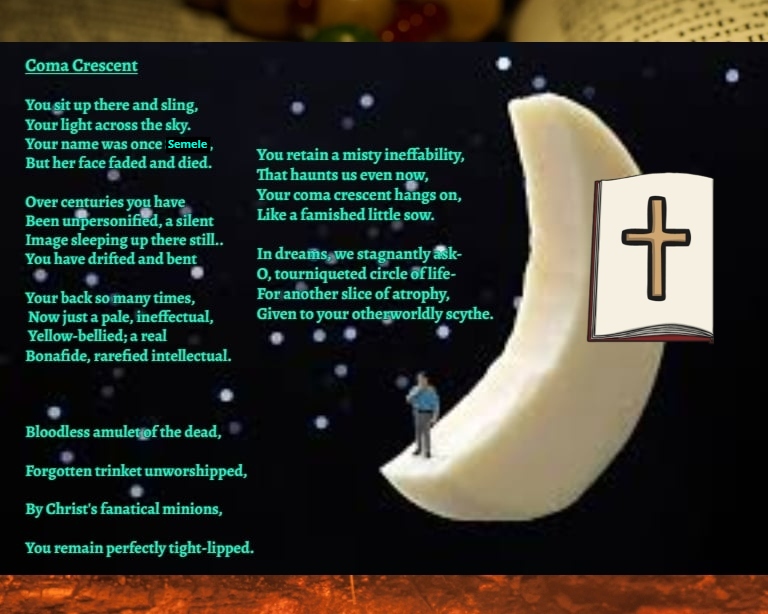
What Does It Mean To Be a Submissive Wife? The Bible Explained.



King Lewy The 1/5th, (The Golden Ratio Of Monkey Blood)




Back To The Future, Bollywood Special XXX







Monster
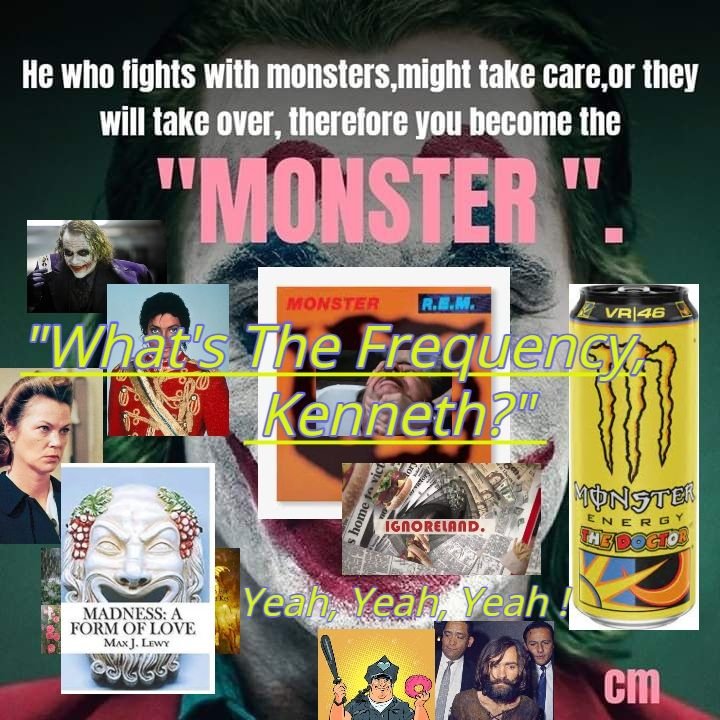



Make Homelessness Fashionable Again


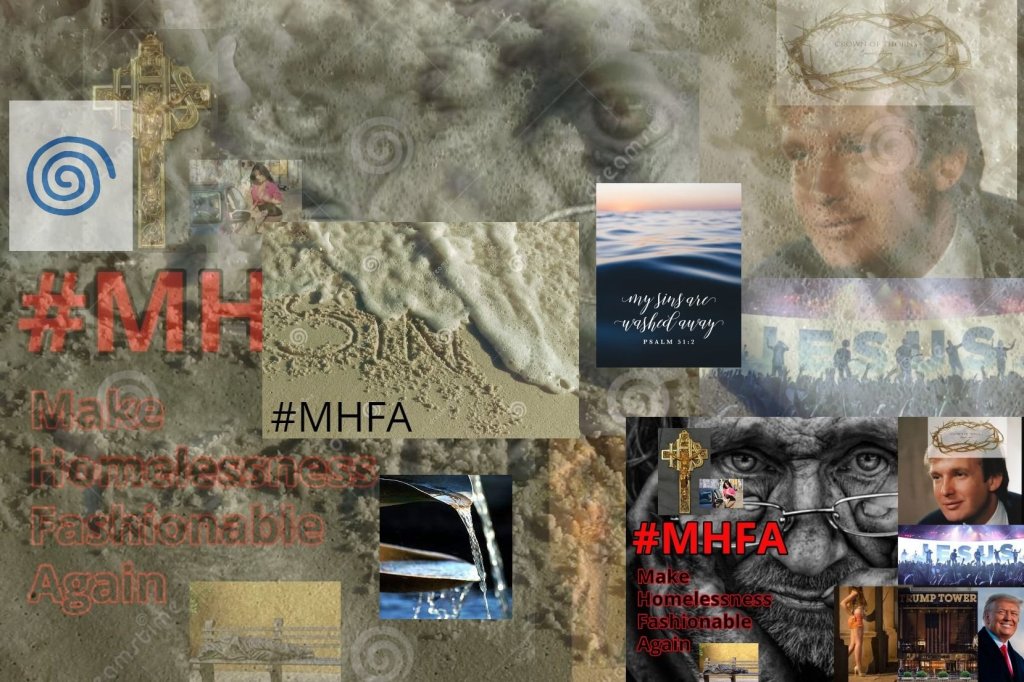
And after the Party, its the After Party





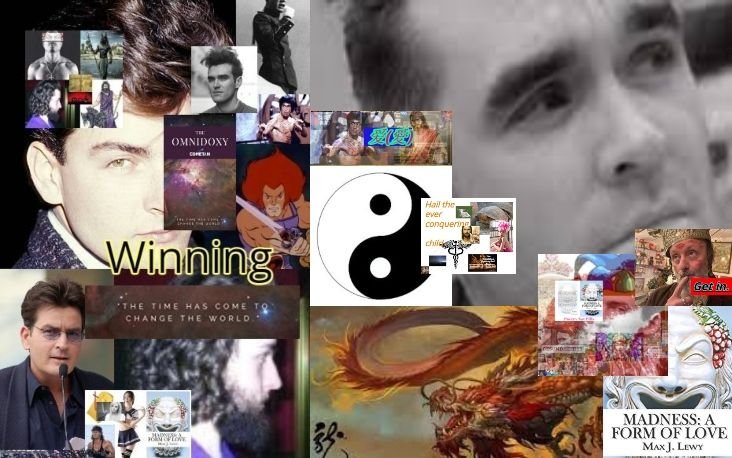

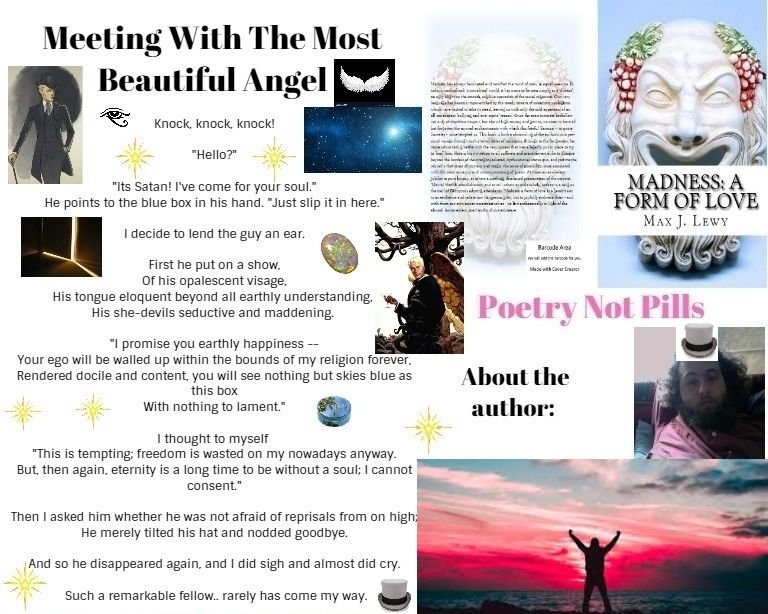

Dr. Dijal Will Sort It Out For YOU, my dear…




4 Step Rule


